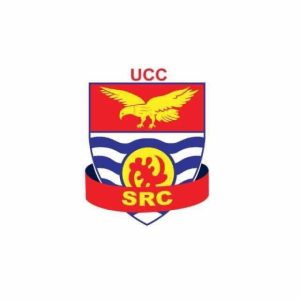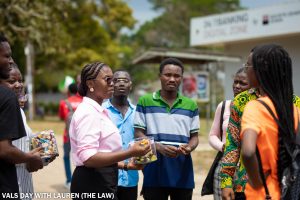The University of Cape Coast has designed a programme to upgrade Professional Nursing Assistant Clinical (NAC) and Nurse Assistant Preventive (NAP) certificate programmes into Diploma in Midwifery.
This arrangement was made possible through the collaborative efforts of the Nursing and Midwifery Council (NMC), UCC and the various Health Training Institutions. The programme would be implemented through a sandwich period of eight weeks as a bridge course for the award of Diploma.
When finalised, the eight-week sandwich course would be run specifically for qualified Nurse Assistants to be registered by the NMC as Registered Midwife. It would also provide for equitable and appropriate placement of this group of midwives in varied health care roles as in the case of those who do the straight Diploma in Midwifery programme.
Launching the new Diploma Programme, the Deputy Minister for Health, Ms. Tina Mensah, indicated the government’s readiness to support the next stage of the development of the newly-introduced novelty in Nursing and Midwifery education. She explained that with more than four decades of regulatory experiences, the NMC in collaboration with some training institutions had churned out qualified midwifery practitioners at the certificate and diploma levels, and the new programme would have a far-reaching impact in strengthening the country’s health system.
“Information available to the Ministry from the Council indicates that 985 potential candidates for the Post NAC and NAP Diploma in Midwifery are expected to graduate from the conversion this year,” she said.
Ms. Mensah said the Post NAC and NAP Diploma in Midwifery would not only prepare qualified trainees to pursue a rewarding and challenging career in midwifery, but also provide them with the requisite knowledge, skills and behaviours to deliver safe and effective, evidenced-based care, and to further ensure responsible and accountable practices. This, according to her would certainly contribute to improving the quality of health care in the country by helping to raise the status of that category of health workers to the “professional” level, and prepare them for further development of their midwifery careers through higher education.
Ms. Mensah said it was an undeniable fact that, central to the progress of any nation was the development of its human resource through training and education, adding that “in the 21st century, labour investment comes not where labour is cheap, but where it is skilled.” She said there was the need to build a stock of professional and skilled midwives, to contribute to the reduction of the global maternal mortality ratio to less than 70 per 100,000 live births by 2030.
Ghana, she said, was currently aiming at reducing neonatal mortality to at least 12 per 1,000 live births and under five mortality to at least as low as 25 per 1,000 live birth the same period. “With the country’s current population of over 29 million, the over 19,000 professional midwives is woefully inadequate”, stressing the need for more of these experts, to handle maternal and child issues including their families” she stated.
The Deputy Minister recommended that, in order to ensure a successful outcome of the programme, the curriculum of the programme, which sought to address the gaps in the previous curriculum ought to be regularly reviewed, updated and reoriented to reflect continuous relevance to the country’s needs in midwifery services.
She was hopeful that the curriculum for the programme would clearly reflect Ghana’s expectation, health problems, health system and the prevailing social determinants of health. She further called for a closer collaboration between the Nursing and Midwifery Council and various health service providers and partners to ensure the success of the programme.
The Chairman of Committee for Institutional Affiliation, Prof. Edward Marfo-Yiadom, on his part gave assurance that with UCC’s rich experiences in mentoring of tertiary institutions, the institutions should expect the best of services from the University. He said UCC had put modalities in place for the successful running of the Diploma programme.
Prof. Marfo-Yiadom said, the University as part of its mandate as mentor, had finished with the designing of the curriculum for the programme and indicated that “We shall be in charge of assessment which includes moderation of examination questions and marked scripts; course outlines; admission of candidates to the Diploma Programme and award of Diploma to successful of students who complete the programme. He said the University would build the capacity of tutors and other administrative staff of the 38 Colleges to effectively handle the programme to achieve its objectives.
As part of the launch, a stakeholder meeting was held for the team from UCC to explain the details of the programme. Issues that were discussed were the Curriculum, Financial matters, UCC’s responsibility as Mentoring Institution and the role of the mentee institutions.
The Ghana Health Service has also agreed to extend the study leave period for prospective candidates to enable them pursue the course, while the MOH would also play host to the programme within the campuses of its various training institutions across the country.
The team from UCC comprised Prof Johnson Boampong, Prof Kankam Boadu, Prof A.N.M Pappoe, Prof Francis Offei, Mr Jeff Teye Onyame, Dr. Vera Ankomah Sey, Dr Andrews Druye, Dr Samuel Acquah, Dr Evelyn Ampofo, Mr. Stephen Baffoe, Mr. Justice K.G.A Boateng, Mr. Kwabena Antwi Agyapong and Mr Eugene Johnson.
Source: ucc.edu.gh









